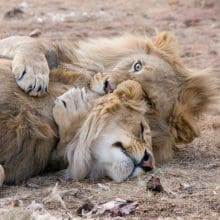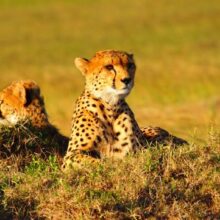Are Bobcats Highly Territorial?
Highly Territorial:
Are bobcats highly territorial? This is a question that has been asked by many people who are interested in learning more about these wild cats. Bobcats are a species of wild cat that is native to North America and can be found in a variety of habitats, from forests to deserts. They are known for their solitary nature and their ability to adapt to different environments. In this article, we will explore the territorial behavior of bobcats and discuss whether or not they are highly territorial animals. We will also look at the factors that influence their territorial behavior and how it affects their interactions with other animals.
Highly Territorial: How Bobcats Establish and Defend Their Territories
Bobcats are solitary animals that establish and defend their territories in order to ensure their survival. A bobcat’s territory can range from 5 to 20 square miles and is marked with urine, feces, and claw marks. Bobcats are territorial animals and will defend their territories from other bobcats, as well as other animals.
Bobcats use a variety of methods to establish and defend their territories. They will mark their territories with urine, feces, and claw marks. Bobcats will also use vocalizations such as growls, hisses, and yowls to warn other animals away from their territory. Bobcats will also patrol their territories, chasing away any intruders.
Bobcats are also known to use scent marking to establish and defend their territories. Bobcats have scent glands located on their cheeks, feet, and tail. They will rub these glands on trees, rocks, and other objects to mark their territory. This scent marking serves as a warning to other bobcats and animals that the area is already occupied.
Bobcats are also known to fight with other bobcats in order to defend their territories. Bobcats will fight with their claws and teeth in order to drive away intruders. These fights can be quite violent and can result in serious injury or even death.
Bobcats are territorial animals and will go to great lengths to protect their territories. They use a variety of methods to establish and defend their territories, including scent marking, vocalizations, and physical fights. By doing so, bobcats ensure their survival and the survival of their offspring.
Highly Territorial: The Role of Bobcats in Maintaining a Healthy Ecosystem
Bobcats (Lynx rufus) are an important part of maintaining a healthy ecosystem. These medium-sized cats are found throughout North America, from Canada to Mexico. They are solitary animals, living and hunting alone, and they play an important role in controlling the populations of their prey species.
Bobcats are carnivores, and their diet consists mainly of small mammals such as rabbits, mice, and squirrels. By controlling the populations of these animals, bobcats help to maintain a balance in the ecosystem. They also help to keep the populations of larger predators, such as coyotes and foxes, in check. This helps to ensure that the larger predators do not become overpopulated and begin to deplete the food sources of other species.
Bobcats also help to keep the populations of their prey species healthy. By preying on the sick and weak animals, bobcats help to ensure that only the strongest and healthiest animals survive. This helps to keep the populations of their prey species strong and healthy.
Bobcats also help to keep the environment healthy by controlling the populations of rodents and other small animals. These animals can cause damage to crops and spread diseases, so controlling their populations is important for maintaining a healthy ecosystem.
Overall, bobcats play an important role in maintaining a healthy ecosystem. By controlling the populations of their prey species, they help to keep the environment balanced and healthy. They also help to keep the populations of larger predators in check, and they help to keep the populations of rodents and other small animals under control. By doing so, they help to ensure that the environment remains healthy and balanced.
Conclusion
Highly Territorial: bobcats are highly territorial animals and will defend their territory from other bobcats and other animals. They are solitary animals and will mark their territory with urine, feces, and scent glands. Bobcats are also known to be very vocal and will use a variety of vocalizations to communicate with other bobcats. They are an important part of the ecosystem and play an important role in controlling the population of small mammals.
Read More About Bobcats From Wikipedia




